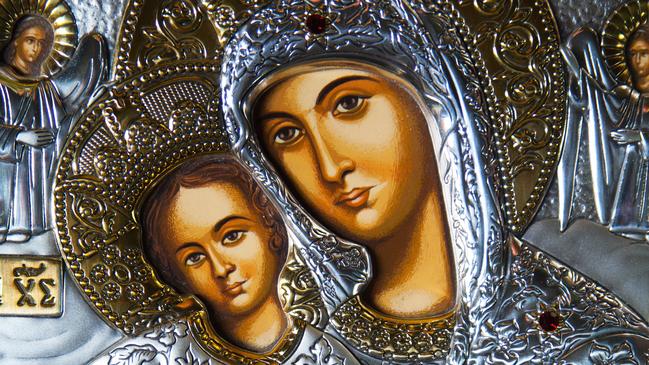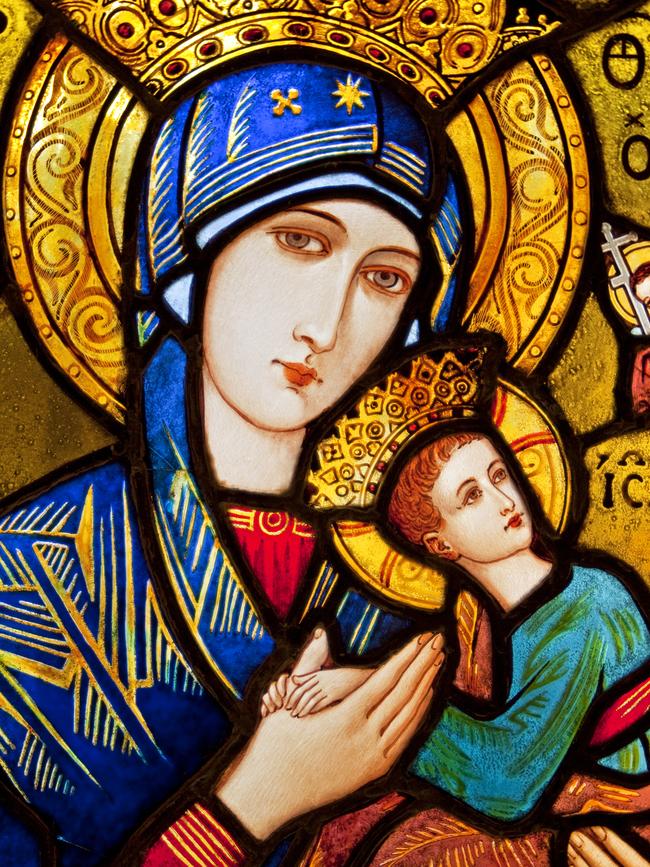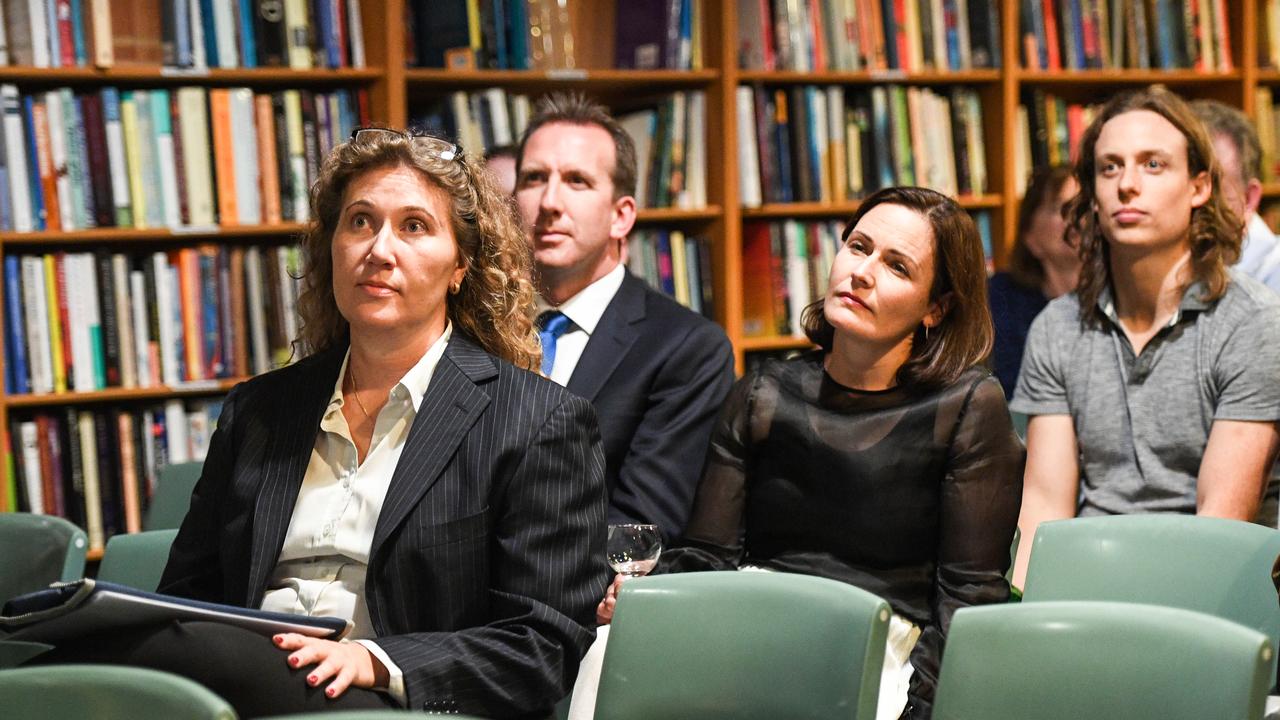Time to reassess Mary, the first Christian
Those who think Mary gets too much attention have obscured just how active and decisive a human figure she was.

The first person in the Gospels to proclaim Jesus was Mary, his mother. She remains, more than 2000 years later, the most popular Christian saint. She is the most influential woman in history, and the most loved.
Take one example. The title song of the Beatles’ last album was Paul McCartney’s Let It Be. McCartney wrote this about his own mother, Mary, who came to him, rather biblically, in a dream during a tough time in his life. But millions of people thought the song about Mary of the Gospels, or took comfort from that image anyway. McCartney was happy with this, saying once: “I think it’s a great thing to have faith of any sort, particularly in the world we live in.”
The words “let it be” are among the first Mary says to the Archangel Gabriel after he announces to her that she is to be the mother of Jesus. Another line in McCartney’s song about a light that shines recalls John’s Gospel: “The light shines in the darkness.”
McCartney, from a Liverpool Catholic family, surely had these verses rattling round in his head. Mary retains a hold on the popular imagination, an honoured place in the popular mind.
But of course, Mary doesn’t depend on the Beatles.
It’s too easy to miss the vibrant humanity and historic agency of Mary, her leadership in some respects.
Both those who think Mary gets too much attention, and those whose traditions have fostered devotion to Mary, have perhaps somewhat obscured just how active and decisive a human figure Mary was.
The best place to meet Mary in the New Testament is in Luke, the warmest of the Gospels, for there are more women there than in the others. There is an ancient tradition that Mary was Luke’s chief source, just as there is a tradition that Peter was Mark’s chief source.
Luke was a physician, and his Greek is the finest in the New Testament. I believe the Gospels are true and inspired. But they didn’t float down from heaven in completed form. Luke tells us of his journalistic methods. He was not an eyewitness to Jesus’ life. He got the story from primary sources.
The first thing a journalist sees in Luke is a scoop, an exclusive. He must have had a great source. Only Mary, directly or indirectly, could have provided Luke with the account of her learning of her miraculous pregnancy. That ought to be the first clue to Mary’s agency, her dynamism and activism. She knew part of the Jesus story that no one else could know. She gave that to us through Luke. By briefing Luke, she controlled the narrative for history
Mary’s agency and dynamism run all through her personality. First of all, it is there in her accepting the gift of the Holy Spirit. Mary had to say yes for the rest of the story to proceed.
Consider the unique, and uniquely vulnerable, position Mary is in when the Archangel Gabriel visits her. Mary is a teenage girl betrothed to Joseph. Under the customs of the time, betrothal means much more than being engaged today. It was an exclusive, locked-in deal.
When an angel had appeared to Zechariah, a priest at the temple and husband of Mary’s cousin, Elizabeth, he was terrified, paralysed by fear. Mary was different, much calmer reacting to much greater dislocation. Gabriel’s message to Mary is revolutionary. She will bear a child to be named Jesus, he will be called the Son of the Most High and his kingdom will have no end. Here is Mary’s decisive reply, critical for her destiny and for all of human history: “I am the servant of the Lord. Let it be with me according to your word.”

The first thing Mary does then is to travel alone to visit Elizabeth and stay with her for three months. Travelling alone in the ancient world for women and girls was not so easy, Mary has, as the military instructors say about promising young officers, “a bias for action”.
Joseph, deeply troubled by Mary’s pregnancy, planned to dismiss her quietly. We don’t know whether Mary told Joseph about the visit from the angel, or whether she hadn’t told him and was waiting for him to understand. Later an angel visited Joseph and reassured him.
But here is one lesson. Even the most magnificent faith, the deepest union with God, the most robust, deep-seated, genuine virtue, provides no magic pathway out of the intractable messiness of life.
The outsiderness of Christianity is evident all through Mary’s story. Jesus, Mary and Joseph, the holy family, tell the story, at different stages, of an unmarried pregnant teenager; a foster father; an improvised birth away from home; refugees fleeing persecution across borders; and ultimately a mother who has to endure her worst nightmare in the arrest, vilification, torture and death of her son.
In telling Elizabeth her news, Mary delivers the most memorable and powerful speech by anyone other than Jesus in the entire New Testament. Known as the Magnificat, it is one of the most powerful statements in history. Mary declares: “My soul magnifies the Lord, my spirit rejoices in God my saviour, for he has looked with favour on the lowliness of his servant. Surely, from now on all generations will call me blessed. For the Mighty One has done great things for me, and holy is his name. His mercy is for those who fear him from generation to generation. He has shown strength from his arm; he has scattered the proud in the thoughts of their hearts. He has brought down the powerful from their thrones, and lifted up the lowly; he has filled the hungry with good things, and sent the rich away empty. He has helped his servant Israel, in remembrance of his mercy, according to the promise he made to our ancestors, to Abraham and to his descendants forever.”
Sometimes Mary’s words are judged implausible because they bear some resemblance to various prayers in the Old Testament, especially Hannah’s prayer in Samuel. But this objection is absurd. It is extremely common for religious people to pray the words of their Scriptures, especially at critical moments. Observant Jews in Nazareth 2000 years ago knew the prayers of the Old Testament. There was no Kardashian reality TV to compete for space in their minds. Jesus prayed the Psalms all his life, even on the cross.
Mary’s personality is unmistakeable in her speech to Elizabeth. Four things strike us.
First, Mary is grateful, grateful for life and the special role she will play, though from early on she knew its grandeur would be surrounded by suffering.
Second, God is at the centre of this event and this prayer. God is at Mary’s centre.
Third, the ubiquitous Christian inversion of power. God has “filled the hungry with good things and sent the rich away empty”. Scot McKnight, in his wise, graceful little book, The Real Mary, records that in the 1980s the Guatemalan government banned public recitation of the Magnificat. You can see why King Herod wouldn’t have liked it.
And fourth, the speech is bold, forthright, emphatic, confident. Mary’s sheer self-confidence is breathtaking. “My soul magnifies the Lord, my spirit rejoices!” This is a woman of courage and conviction.
Not long after Jesus’ birth, a dark shadow is cast across Mary’s life. Joseph and Mary take Jesus to the temple. A man there, Simeon, recognises that Jesus is the saviour, but says to Mary “a sword will pierce your own soul too”.
When he is 12, in the ancient world the cusp of adulthood, Jesus stays behind in the temple in Jerusalem. Mary and Joseph are beside themselves looking for him. When they find him, Mary says: “Child, why have you treated us like this? Look, your father and I have been searching for you with great anxiety.”
There is so much to like in Mary’s statement, not least the status she gives to Joseph. Jesus is the son of God, but in earthly matters his effective father is Joseph. This is an inspiration for stepfathers.
Mary and Joseph don’t understand Jesus’ explanation for his actions. The next statement from Luke is fascinating: “Then he (Jesus) went down with them and came to Nazareth and was obedient to them. His mother treasured all these things in her heart.” This phrase means that Mary committed these matters to memory. It’s as close as you could imagine to Luke telling us that Mary is his source, directly or indirectly.
Luke tells us that, living with Mary and Joseph, Jesus grew in “wisdom, age and grace”. This puts Mary very high as an educator.
Mary figures repeatedly in the Gospels, sometimes concerned for Jesus’ welfare. At one point, at the wedding feast of Cana, she tells Jesus of a problem, the hosts have run out of wine. That’s nothing to do with me, Jesus replies.
Mary makes no further requests, but instructs the caterers to do whatever Jesus tells them. And so the wine flows, demonstrating Jesus’ immense regard for his mother.
Mary figures in other episodes in the Gospels, always an activist, making her own decisions. She is there too after Jesus’ resurrection in the Acts of the Apostles, in a passage that otherwise mentions only the senior leaders.
The final involvement of Mary in Jesus’ life comes at the cross. Supporting Jesus publicly by then was dangerous. Only one of the men, John, was there, but there were several women, including Mary.
It’s worth pausing for a second to note the strange feminine rhyme in the Gospels. The first person to know of Jesus, then to know Jesus, and to proclaim him, was a woman. The first person to see the risen Jesus, Mary Magdalene, was a woman. The majority of those who stood heroically with Jesus at the cross, in solidarity in his worst moments, were women. Something, surely, to remark.
Jesus looks down from the cross to where Mary and John are standing and, in the depths of his own exhaustion, and very near to death, says: “Woman, this is your son” and to John, “This is your mother.”
Jesus has asked his mother and his best friend to look after each other. Forget the theology for a second, the human affection is overwhelming. When she lives with John, does Mary help inform John’s later striking, elevated, intensely poetic appreciation of Jesus, rendered in a Gospel of unique grandeur, and which incidentally contains the scoop of the wedding feast of Cana?
In Dominion, Tom Holland writes: “Mary could embody for even the humblest and most unlettered peasant all the numerous paradoxes that lay at the heart of the Christian faith.”
Mary deserves to be defined by her own words: “My soul magnifies the Lord, my spirit rejoices in God my saviour.”
This is an edited extract from Christians: The Urgent Case for Jesus in Our World (Allen & Unwin), out now.





